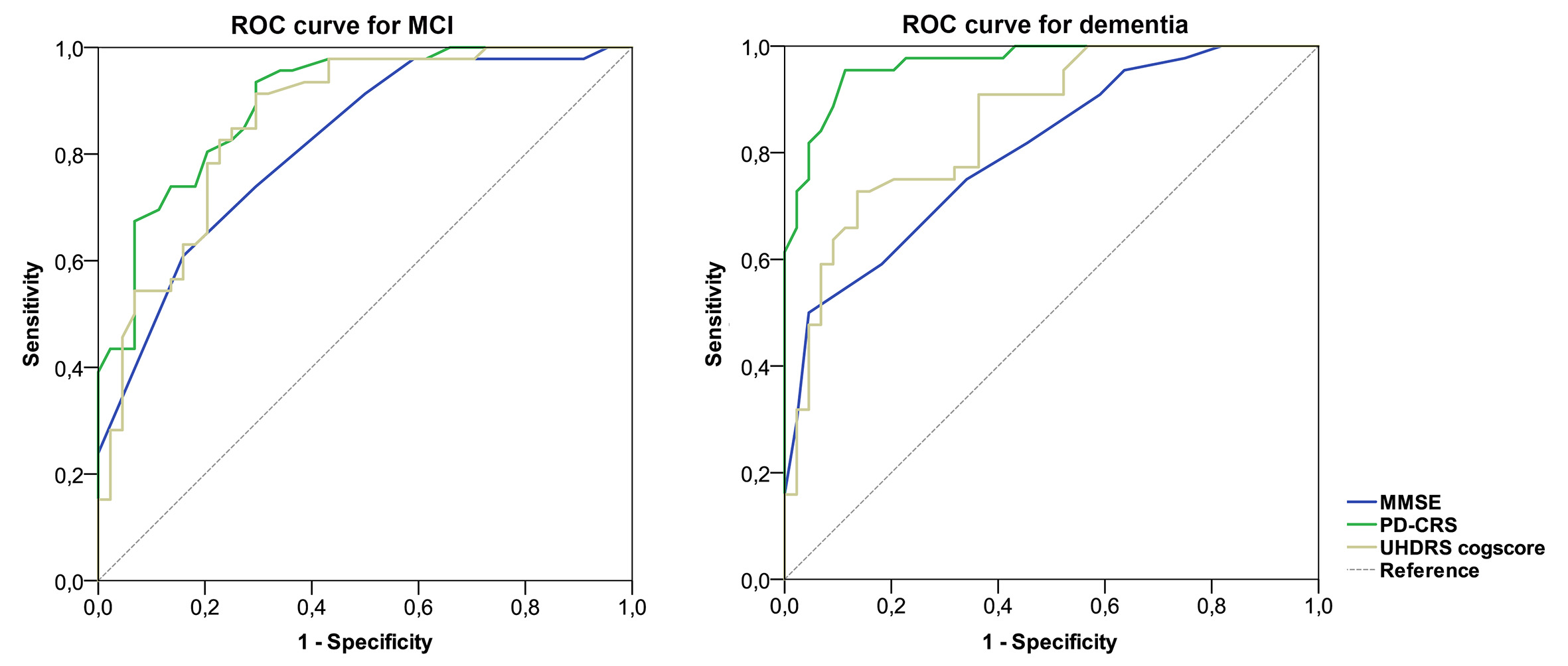Category: Huntington's Disease
Objective: We addressed and compared the discriminative properties of different cognitive instruments, and we determined the sensitivity to change of the proposed assessments in the overall sample and in the different cognitive groups.
Background: Progressive cognitive decline is an inevitable feature of Huntington’s disease (HD), but specific criteria and instruments allowing to reliably classify patients into different categories of cognitive severity and to monitor the progression of cognitive impairment, are still insufficient.
Method: We collected data from a cohort of 180 positive gene-carriers distributed into 33 premanifest participants (PreHD) and 147 manifest HD. Using an specifically developed gold-standard for cognitive status, participants were classified with normal cognition (HD-NC), mild cognitive impairment (HD-MCI) or with dementia (HD-Dem). The Parkinson’s Disease – Cognitive Rating Scale (PD-CRS), the MMSE and the UHDRS cogscore were administered at baseline, 6-month and 12-month follow-up visits. Cutoff scores discriminating the different cognitive categories were calculated for each instrument. Sensitivity to change and the minimally clinical important difference corresponding with conversion from one category to other and with cognitive progression, were addressed for each cognitive group and instrument.
Results: The PD-CRS cutoff scores for MCI and dementia obtained excellent sensitivity and specificity ratios that were not achieved by the other instruments. The rate of conversion from one cognitive category to another along follow-up was properly captured by the PD-CRS, as well as the different patterns in terms of cognitive trajectories exhibited along follow-up by the different cognitive groups.
Conclusion: The PD-CRS is a valid and reliable instrument to capture MCI and dementia syndromes in HD. This instrument is able to capture the different trajectories of cognitive progression as a function of cognitive status and exhibits sensitivity to change in MCI and dementia.
To cite this abstract in AMA style:
A. Horta-Barba, S. Martinez-Horta, J. Pérez-Pérez, A. Puig-Davi, N. de Lucia, G. de Michele, E. Salvatore, S. Kehrer, J. Priller, S. Migliore, F. Squitieri, A. Castaldo, C. Mariotti, V. Mañanes, J. Lopez-Sendon, N. Rodriguez, A. Martinez-Descals, F. Júlio, C. Januário, M. Delussi, M. de Tommaso, S. Noguera, J. Ruiz-Idiago, E. J. Sitek, R. Wallner, A. Nuzzi, J. Pagonabarraga, J. Kulisevsky, HD. Disease Network. Discriminative properties and sensitivity to change of three cognitive assessment instruments in Huntington’s disease [abstract]. Mov Disord. 2023; 38 (suppl 1). https://www.mdsabstracts.org/abstract/discriminative-properties-and-sensitivity-to-change-of-three-cognitive-assessment-instruments-in-huntingtons-disease/. Accessed December 13, 2025.« Back to 2023 International Congress
MDS Abstracts - https://www.mdsabstracts.org/abstract/discriminative-properties-and-sensitivity-to-change-of-three-cognitive-assessment-instruments-in-huntingtons-disease/


